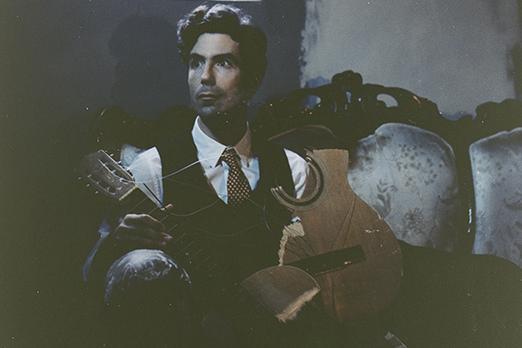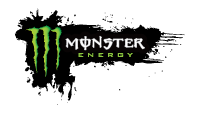Guy Blakeslee (The Entrance Band) delivers his first solo album in ten years. Produced by Chris Coady (Beach House, Yeah, Yeah Yeahs), Ophelia Slowly, takes a step back from the dense rock sound his LA-based neo-psychedelic trio is known for, delving instead into a sparse, spooky dreamscape where drum loops, synthesizers, and the occasional acoustic guitar frame his always haunting vocal delivery. Recorded in New York in the fall of 2013, the album focuses on Blakeslee’s recent descent; wrestling with demons and angels alike, he has come through it victoriously, expressing the hopeful message of a modern day spiritual. If this album conveys a type of conversion, Blakeslee doesn’t want you to forget his appreciation for tragedy; the title itself is a reference to Shakespeare’s Hamlet heroine. Recording under his own name for the first time, Blakeslee seems to hint that the intention for this project is intimate and vulnerabl...
Show the rest
Guy Blakeslee (The Entrance Band) delivers his first solo album in ten years. Produced by Chris Coady (Beach House, Yeah, Yeah Yeahs), Ophelia Slowly, takes a step back from the dense rock sound his LA-based neo-psychedelic trio is known for, delving instead into a sparse, spooky dreamscape where drum loops, synthesizers, and the occasional acoustic guitar frame his always haunting vocal delivery. Recorded in New York in the fall of 2013, the album focuses on Blakeslee’s recent descent; wrestling with demons and angels alike, he has come through it victoriously, expressing the hopeful message of a modern day spiritual. If this album conveys a type of conversion, Blakeslee doesn’t want you to forget his appreciation for tragedy; the title itself is a reference to Shakespeare’s Hamlet heroine. Recording under his own name for the first time, Blakeslee seems to hint that the intention for this project is intimate and vulnerable, and as anyone who has caught his recent solo dates opening for Spiritualized or Cat Power will attest, he delivers on that promise. Blakeslee has always been a re-interpreter of early American Delta blues. On Ophelia Slowly, his love for the genre is felt not only in his upside down, left-handed electric guitar playing, but also in his soulful howl: needing no accompaniment at all, it’s as comfortable in an Echo Park nightclub as it would a 1920’s Mississippi street corner. “In a way, the words and the vocal performance are the focus of this record,” explains Blakeslee. “The music is there to create a mood for the voice to exist in. It’s the first time there’s not a lot of effects on my vocals, there’s a little reverb, but it doesn’t sound far away. In the past I was covering up my voice, turning it down and drowning it out.” Allowing his vocals to appear front and center, as opposed to his impressive guitar playing, seems to be a decision inspired, in part, by Chris Coady, who not only recorded Blakeslee’s last solo album, Wandering Stranger (Fat Possum), but was the first person to record him at all. The two grew-up together in Baltimore and seem to share an unspoken communication, having collaborated on music together since high school. “[Coady] came to see me play in New York last April and said, ‘I had chills the whole time you were playing.’ He was emotionally connected to the project in a way that I couldn’t find in anyone else,” explains Blakeslee. “It’s great to go back and work with an old friend. His work gets increasingly better every time,” says Coady. Ophelia Slowly was recorded almost entirely at Coady’s studio in the Lower East Side of Manhattan, a neighborhood that informed these eight songs as much as anything else. During the first part of the production, Blakeslee was sleeping in the studio and at night he would walk around Tompkins Square Park and the surrounding neighborhood, listening to the day’s recordings and finishing up lyrics in his head. The opening number, “Haunted City,” written originally about Los Angeles, explores the idea of returning to one’s old stomping grounds, but no longer feeling as if you belong, which hits close to home for Blakeslee — “I used to live in NY and I haven’t spent more then a couple days there in many years. So there’s ghosts of things that happened in the past in that area.” In fact, Ophelia Slowly is bookended with songs that examine cities and the idea of home. The slightly more optimistic closer, “City in the Rain,” speaks to resolution and as Blakeslee explains, “getting back on the journey where it all began.” “I took the final mix of “City in the Rain” to the park in the morning,” says Blakeslee, who has an eye for serendipity and a love for the notion of transcendence. “It began raining just as the rain sound [that appears as an intro to the song] came through my headphones.” Blakeslee’s 2003 version of Skip James’s “I’m So Glad” is currently heard in the soundtrack for Spike Jonze’s Academy Award nominated film ‘Her,’ appearing as the infectious song Scarlett Johansson’s O.S voice/character shares with Joaquin Phoenix, confessing she can’t stop listening to it.
Hide the rest












